If you want to set up a website but don’t know how to code, you need a good content management system (CMS). A CMS lets you create, manage and modify your website without needing any HTML or CSS coding skills.
Right now, two such CMS platforms have dominated the market. One of them is WordPress, and the other is Joomla.
Both of these CMS are open-source and have been around for more than a decade.
In this article, we will compare WordPress and Joomla side by side to determine which platform is the best for you.
- What Is WordPress?
- What Is Joomla?
- Joomla and WordPress Compared
- Joomla vs. WordPress – Summary
- Joomla vs. WordPress – Ease of Use
- Joomla vs. WordPress – Customization
- Joomla vs. WordPress – Security
- Joomla vs. WordPress – Search Engine Optimization (SEO)
- Joomla vs WordPress – Page Speed
- Joomla vs. WordPress – Responsiveness
- Joomla vs. WordPress – Support and Community
- Joomla vs. WordPress – Development Costs
- When to Use Joomla
- When to Use WordPress
- Joomla vs. WordPress – The Verdict
What Is WordPress?
WordPress is the most popular CMS on the planet right now. It powers over 40% of the websites on the internet, and the numbers grow by the day.
Yes, that does mean one in every four websites you visit is probably built on WordPress!
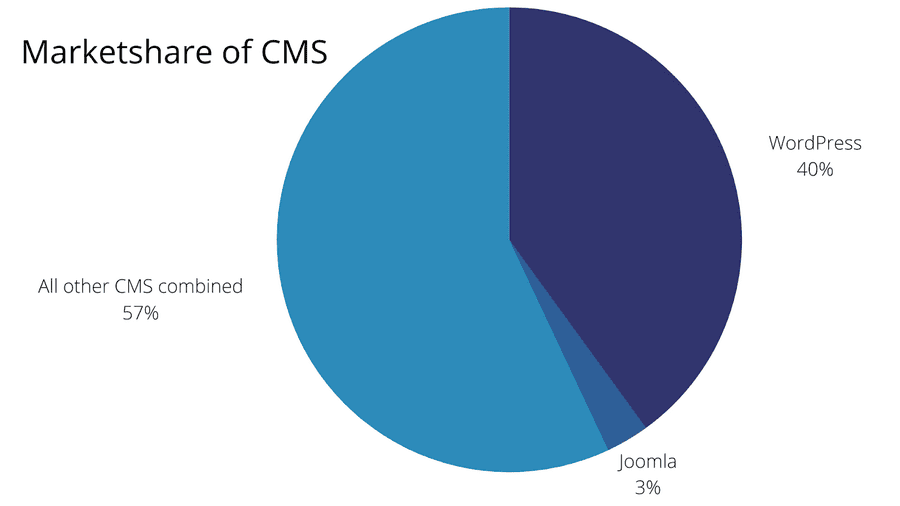
WordPress is built with PHP and uses MySQL as a database. It was first launched in 2003 as a blogging platform. However, it has grown to become much more than that.
It’s very user-friendly, and you can create any type of website you want and customize it to your needs.
The parent company Automattic has built many different web applications. The main two, WordPress.org and WordPress.com, often create the most confusion among new users.
- WordPress.com is a managed hosting platform where you can build your website directly without having to organize web hosting.
- WordPress.org is a self-hosted CMS. That means you can host your website on your own web host and manage the WordPress CMS yourself.
WordPress.org is the most popular choice since it gives you complete control over your website. This is something that we recommend even though it’s a little more work.
What Is Joomla?
Joomla is an open-source CMS that has been around since 2005. Almost as old as WordPress, it powers about 3% of the websites on the internet. That makes Joomla the second most popular CMS out there.
Joomla is written in PHP and uses a MySQL database for storage. It allows users several database options, which make it popular among the tech-savvy.
The Joomla framework enables developers to create many PHP-based applications just like plugins in WordPress. However, if you are not too serious about getting deep into web development, you may not need these features.
It is a good platform for beginners to intermediate website developers and is updated regularly. It features extensive customization and has strong community support behind its development.
Joomla and WordPress Compared
Both WordPress and Joomla are built with PHP, but WordPress completely dominates the internet. While it is natural to choose the most popular option, it is always better to make a complete comparison.
In this section, we compare WordPress and Joomla over eight essential parameters. This will help you gain a better understanding of which CMS to go for when building your website.
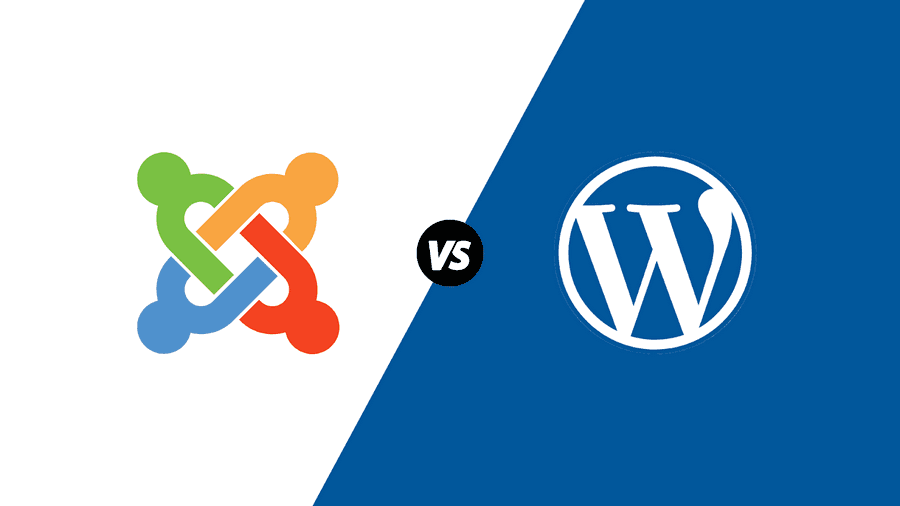
Joomla vs. WordPress – Summary
Here is a quick comparison table based on the categories we picked for the comparison.
| Parameters | WordPress | Joomla |
| Market Share | ~40% of all websites | ~3% of all websites |
| Learning Curve | Easy | Moderate |
| Customization | >8,500 themes and >59,000 plugins in the WordPress repository | ~8,000 extensions in the Joomla repository. No template repository as such |
| Level of Security | Good | Average |
| Average Frequency of Updates | 40-50 days | 30-40 days |
| Search Engine Optimization | Excellent for SEO | Basic SEO |
| Page Load Speed | Fast | Fast (although slower than WordPress) |
| Support and Community | Good number of resources available | Reasonable number of resources available |
| Development Cost | Comparatively cheap | Comparatively expensive |
Joomla vs. WordPress – Ease of Use
If you are a beginner in website building, you will need a CMS that is easy for you. It makes things faster for your business both in terms of starting up and maintenance times.
Let us see how both these CMS perform in terms of beginner-friendliness.
Joomla Ease of Use
Of the two, Joomla requires more patience if you are not familiar with the technology. In terms of installation, Joomla is not very different from WordPress. Many web hosts provide one-click installation of both WordPress and Joomla.
However, the main difference comes after you have installed Joomla. It takes a bit more time and effort to design and develop. Non-developers might find Joomla more overwhelming than using WordPress.
In terms of content creation. Joomla uses a combination of Articles and Categories. So before you begin to start content, you need to create or set a category for every kind of content you want to make.
It is not too much effort but is an additional step compared to WordPress.
WordPress Ease of Use
In terms of ease of use, the point goes to WordPress. The short learning curve required for WordPress is something that gives it the edge over other CMS.
One of the biggest reasons why so many users opt for WordPress is its simplicity. You can set up your WordPress website within 15 minutes or less.
Even for less tech-savvy users, it is faster to learn and easier to use. The WordPress back end is clean and straightforward. Everything you need while developing your website is accessible from the left sidebar.
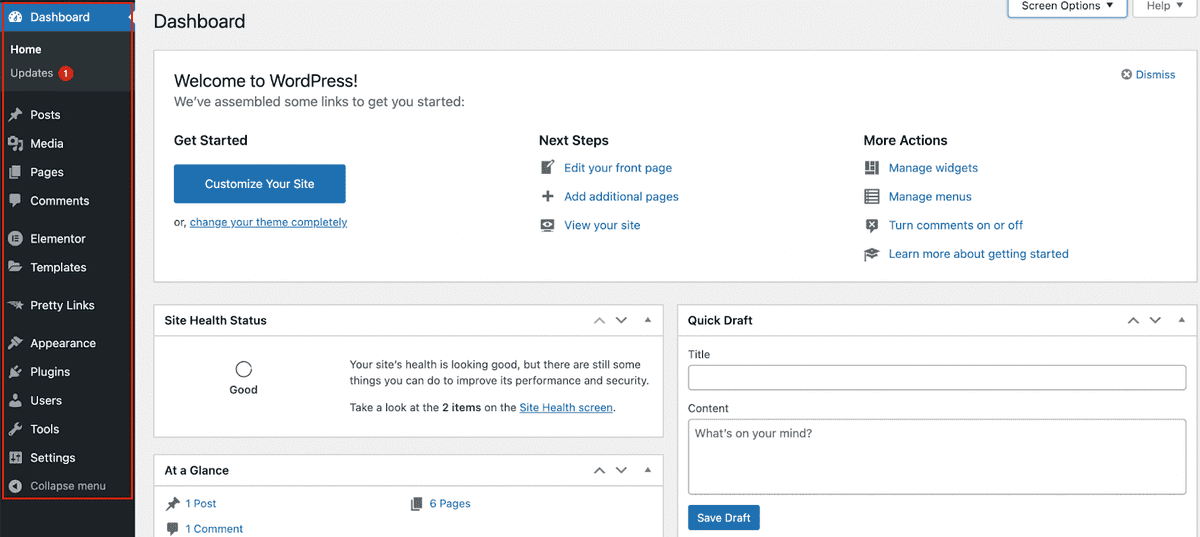
When it comes to designing and developing websites, WordPress comes with a myriad of themes and plugins that help you add any functionality you could wish for on your website.
Joomla vs. WordPress – Customization
Both Joomla and WordPress come with themes and plugins that extend the appearance and functionality of your website. Themes control the look and feel of your website while plugins add more features.
Both of these are pieces of code that help you customize your website.
Let us see how much these CMS deliver when it comes to customization.
Joomla Templates and Extensions
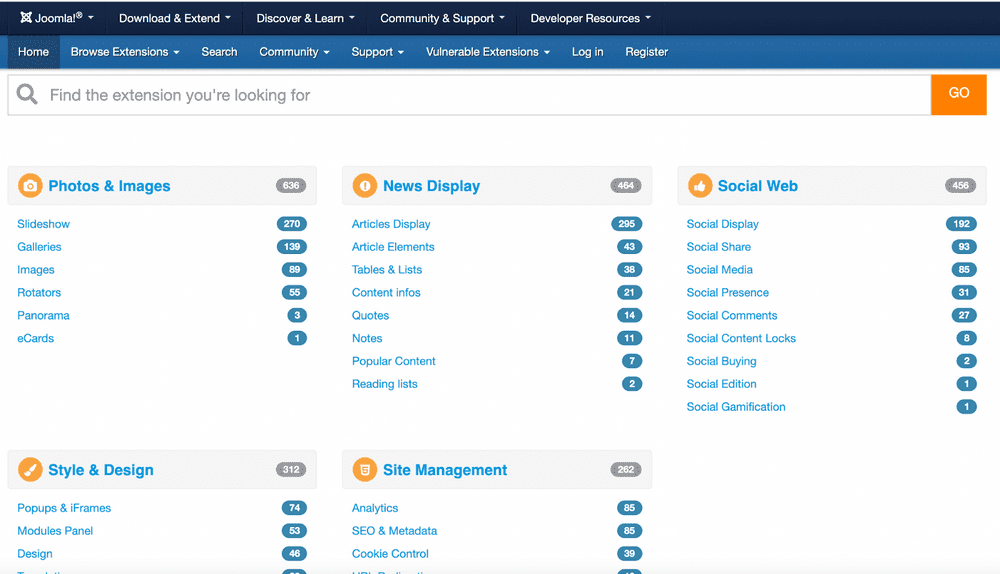
In Joomla’s terminology, templates are the look and feel of the website. Extensions, as the term suggests, extend the features of the website.
As of now, there are around 8,000 extensions in the Joomla extension library. You can also find more attachments in different marketplaces like CodeCanyon, or on developer websites.
There is no official template repository for Joomla as of yet. You can find many templates from third-party developers, often hosted on their own websites or in marketplaces like ThemeForest.
WordPress Themes and Plugins
Here again, WordPress wins the point, primarily because of the sheer volume of themes and plugins built for WordPress.
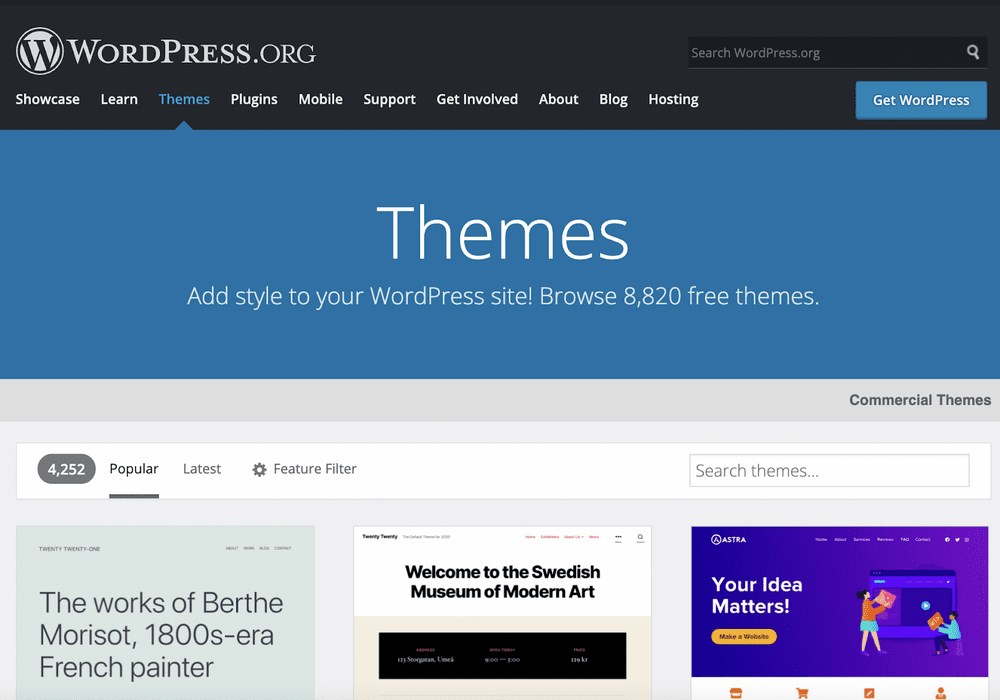
The WordPress repository alone holds more than 8,800 free themes and more than 59,000 plugins. Our very own Astra Theme is one of the most popular themes in the WordPress repository.
As well as the WordPress repository, thousands of premium themes and plugins sell on other marketplaces such as CodeCanyon, ThemeForest, or developer websites. WordPress users can get a theme and the right plugin for any niche they want and any functionality.
The versatility is what gives WordPress the edge here.
Joomla vs. WordPress – Security
In terms of security, every platform is as good as its weakest link. While picking the best CRM for your website, assessing how efficiently they handle their vulnerabilities is important.
Let us see which CMS performs better in terms of security.
Joomla Security
Joomla has the edge when it comes to security primarily because it is less popular and hence not the most popular target.
Joomla also offers a set of security extensions that help you force SSL and add two-factor authentication (2FA). Joomla developers are constantly working on securing the platform more and more.
Joomla updates frequently. More minor updates keep coming every 30-40 days, whereas major updates may come once a year.
WordPress Security
The popularity of WordPress as a CMS is why it has a giant target on its back. However, the developers actively keep track of significant security threats on the internet and frequently update WordPress core to mitigate against them.
WordPress updates almost as frequently as Joomla, with a security update every 40-50 days. You can also expect a significant update every quarter.
WordPress does not have any dedicated feature to force SSL or 2FA. However, you can install any WordPress security plugins to optimize your website security instantly.
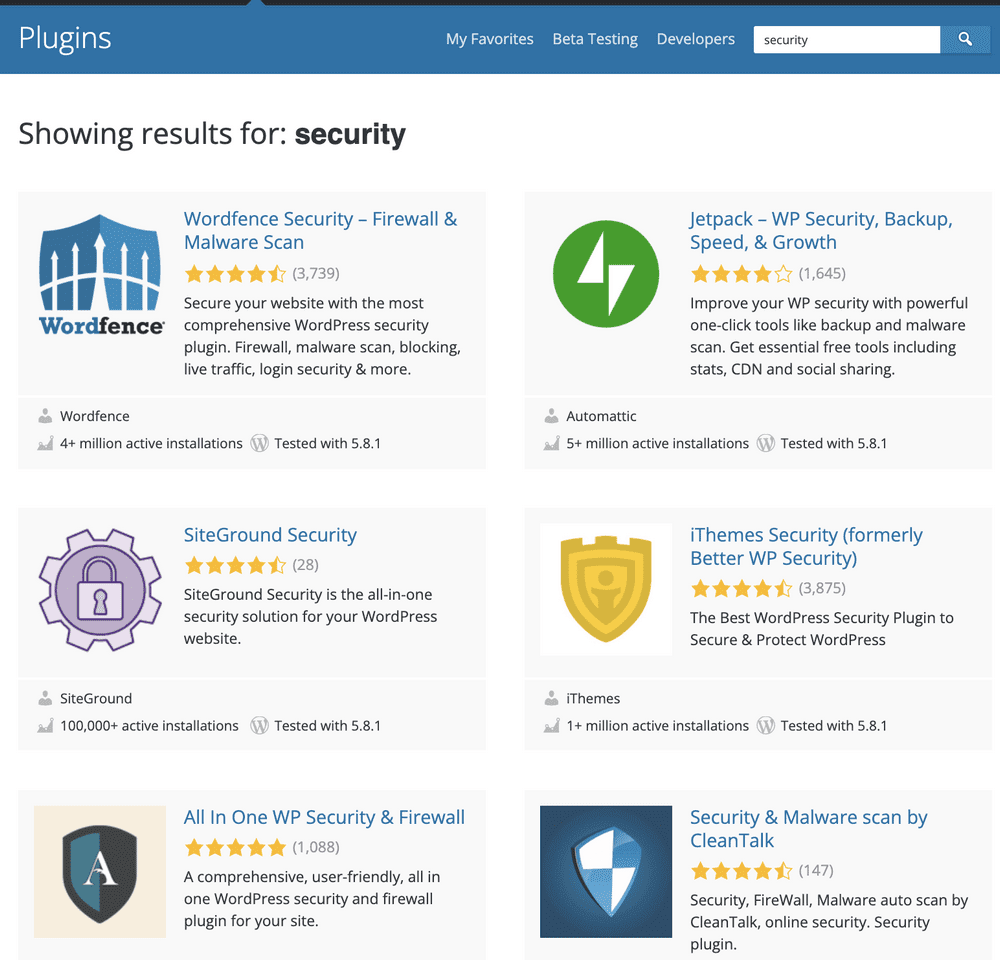
Joomla vs. WordPress – Search Engine Optimization (SEO)
When you’re running your online business, having more traffic always works to your advantage. Being in the top 10 of Google or any other search engine helps you gain more qualified visitors, leading to more leads and more sales.
SEO is a significant part of choosing a CMS, so let’s see how WordPress and Joomla perform.
Joomla SEO
Joomla is an SEO-friendly platform and allows users to create SEO-friendly content and meta descriptions. It also provides URL rewriting that makes your permalinks easily readable by humans and search engines.

Joomla provides on-page SEO optimization settings by default. You can also use specific extensions in Joomla that help you optimize your content and websites.
One of the SEO extensions in Joomla is Easy Frontend SEO (EFSEO) that allows you to optimize your posts and pages on the go.
WordPress SEO
WordPress is well built for SEO performance. Although it does not come with built-in SEO settings like Joomla, it does support several SEO plugins that optimize your on-Page SEO game pretty quickly.
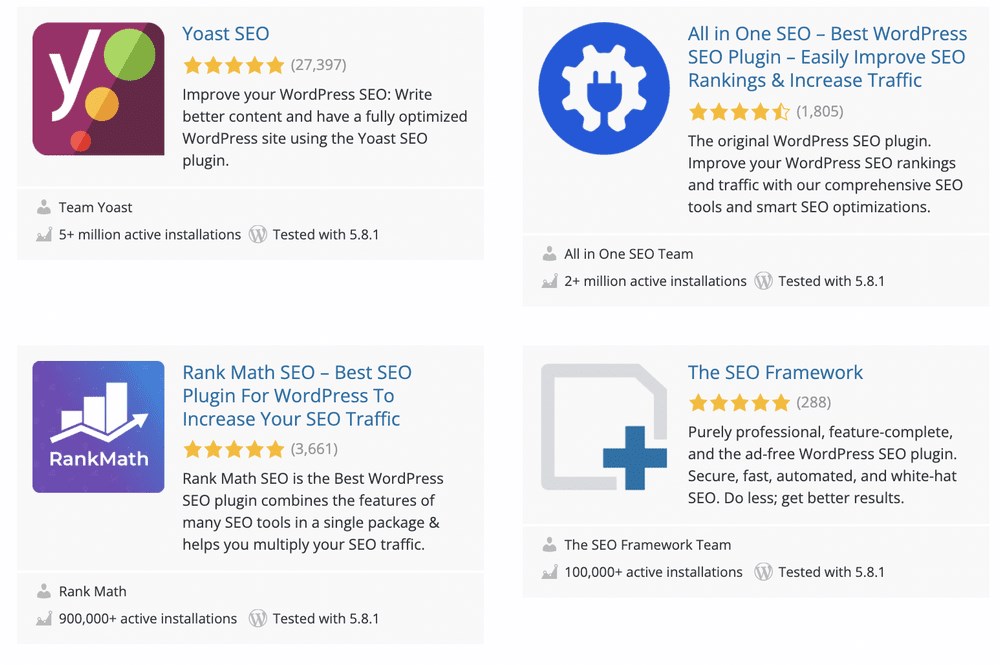
WordPress SEO plugins like RankMath, Yoast SEO, and All-in-One SEO help you through the entire on-page SEO process.
They also help optimize every minute detail, such as post categories, posts, pages, product descriptions, product categories, and much more.
These SEO plugins are way ahead of Joomla extensions and help your website perform better in rankings.
Joomla vs WordPress – Page Speed
Page speed depends on many factors like the CMS, the server your website is hosted on, CDN, the type and number of plugins (or extensions) installed, number of design elements on a page, media size, and many more factors.
To find the better CMS, we conducted our own experiment.
We created two subdomains within the same web host to ensure that they share exactly the same server resources.
We compared both their speeds in GTMetrix to find the faster CMS of the two. One of them was built on Joomla and the other on WordPress.
We did not install any extensions to ensure that the websites compared like for like.
Speed Test Results
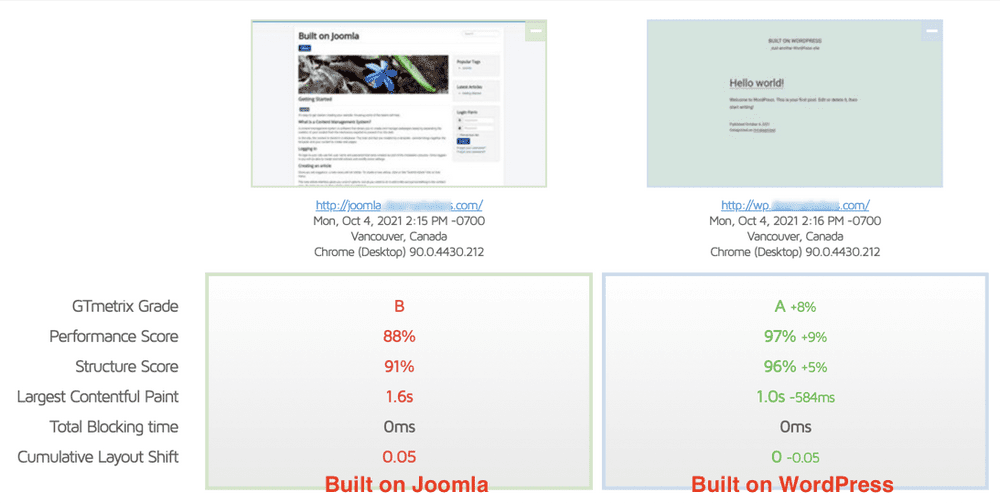
As you can see, WordPress is the clear winner when it comes to website speed in general. We have seen similar results in the case of mobile website performance in Google Pagespeed Insights.
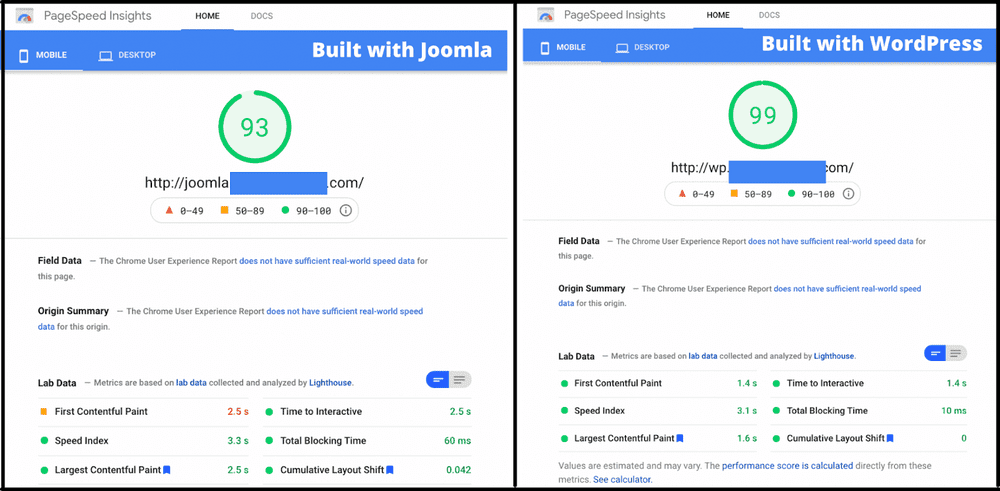
The page speed that you get here in WordPress also helps with SEO. Which is another reason why WordPress is a more popular choice among bloggers.
You can also further improve the WordPress website speed without having to code.
Joomla vs. WordPress – Responsiveness
Gone are the days when you could access the internet only from a computer. Now your audience can visit your website through any device.
Whether it is a smartphone, tablet or computer, the CMS you use needs to run well on both desktop and mobile devices. Let’s see which CMS is better suited for use in different devices.
Joomla Responsiveness
In terms of front-end performance, Joomla underperforms slightly compared to WordPress. Although it is still a good CMS for mobile and tablets, it needs the developer to be more hands-on than WordPress.
Most Joomla templates are responsive and adapt to different screen resolutions.
You can also use page builder extensions to design your pages. SP Page Builder is one such extension that helps you build websites that are user-friendly and responsive.
WordPress Responsiveness
With a good, responsive WordPress theme, you can easily optimize your website for all screen resolutions. You can also customize the website appearance using various WordPress page builders that help you customize the appearance of the web pages specifically for mobile.
WordPress is better suited to handle mobile and tablet responsive pages among the two as it requires less work and loads faster.
Joomla vs. WordPress – Support and Community
When you are starting to develop your website, you may face challenges along the way. In such cases, the support provided by the CMS can help a lot.
The best part about Joomla and WordPress is that both of these platforms have community-backed support. This means there are millions of active users out there who are willing to help a fellow user.
Let us see which CMS fares better in terms of developer and community support.
Joomla Support and Community
Joomla comes with an extensive documentation guide which is valuable for beginners. Joomla also has multilingual support, forums, and mailing lists to help you out.
You can also find a good amount of training to learn from, both paid and free. A lot of Joomla-based web development agencies help create stunning websites for their clients as well.
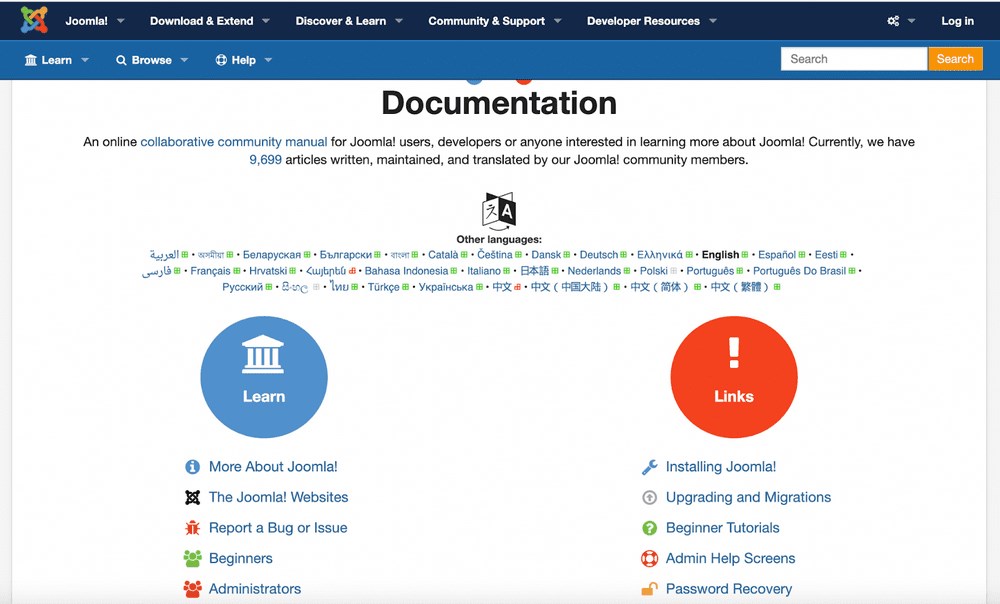
You can also hire Joomla experts to help you out. Joomla has its directory of service providers. You can search and find the right agency for yourself from the list and start working.
In comparison to WordPress, though, Joomla lags behind.
Even with all its effort, you will not find the abundance of support and training that you can get in WordPress. Being the most well-known CMS, the WordPress community is much more thriving compared to Joomla.
WordPress Support and Community
WordPress has a great support section built into the official website. You can find documentation, user guides, and forums to answer most of the questions you might have.
When it comes to individual themes and plugins, WordPress has made things easier for you to identify the best themes and plugins for your website through its rating and review system.
This ensures that developers actively help users with the queries related to the theme or plugin in order to get good reviews.
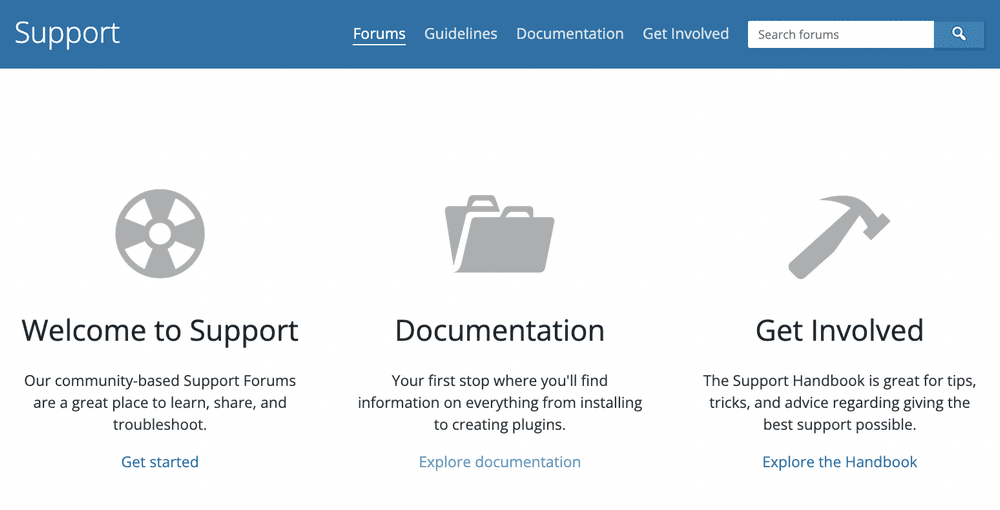
WordPress has a very strong and active forum. You can find information and advice on pretty much any aspect of web development in any niche you work on within the forum. This is an entirely free community driven by passionate users.
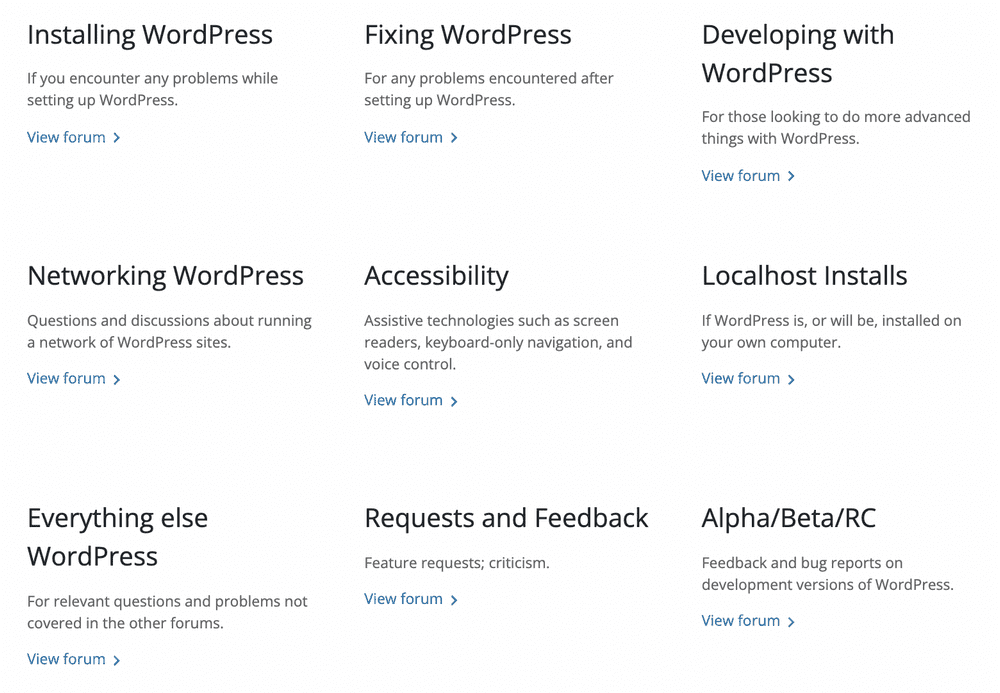
Apart from the community-driven support, there is a wealth of tutorials and training available online. You can also hire WordPress experts from all over the world. They help you with the technical and complex problems you might encounter.
Online platforms like Upwork, Fiverr, Codeable, and Freelancer. are just some of the places where you can find and hire WordPress experts to help you at a very affordable price.
Our own Astra blog is an authority on everything WordPress with tutorials, how-to’s, reviews, and more to help users of all levels.
Joomla vs. WordPress – Development Costs
Both Joomla and WordPress are open source CMS platforms, so you won’t need to pay for the CMS itself.
You will need to pay for web hosting and you may need to pay a developer if you are hiring one.
Joomla Development Cost
Here is the basic cost you might need to bear for building a Joomla website:
- Domain Registration: Registering a unique .com domain costs an average of $10 per year.
- A reliable hosting provider: We recommend SiteGround as a hosting provider as they provide high-quality servers for any CMS you use. Hosting with SiteGround starts from $48 per year for a brand new website.
- Design and development: Top-rated freelancers on Upwork charge around $30 to $60 per hour for Joomla website development. In general, you might be looking at about $1500 – $3000 for an entire project.
- Maintenance charges: Typically, maintenance charges for Joomla start from $100 per month for small websites and go up to $1000 per month for big enterprises. (Source)
So for a website set up, you might be looking at $1600 to $3100 and $1200 to $12000 of annual maintenance charges if you didn’t want to do it yourself.
WordPress Development Cost
Here is the basic cost you might need to bear for building a WordPress website:
- Domain registration: The price would remain unchanged, $10 per year.
- A reliable hosting provider: We recommend SiteGround for WordPress hosting as well. The price would remain unchanged, from $48 per year.
- Design and development: Top-rated freelancers on Upwork charge around $15 to $30 per hour of WordPress website development service. In general, you might be looking at about $750 – $1500.
- Maintenance charges: Typically, monthly maintenance charges for WordPress start from $50 or less for small websites and go up to $500 per month for big enterprises. (Source)
So for website set up, you might be looking at $800 to $1600 and $600 to $6000 of annual maintenance charges if you didn’t want to do it yourself.
The prices of experts depend on the level of their expertise and their listing prices. They can go as high as $100 to $500 per hour. But in general, WordPress development costs are less expensive than Joomla development and maintenance.
Plus, with WordPress being so user-friendly, it’s unlikely you would need to hire anyone to build a website and maintain it anyway!
When to Use Joomla
Joomla is a popular choice for building online forums and websites with extensive product catalogs and complex structures. It is developer-friendly and provides a higher level of sophistication.
It has more advanced user management schemes and suits websites with multiple admins and many users. The learning curve is a bit steep and hence not that good for beginners.
When to Use WordPress
WordPress is a good CMS for designing any type of website. It’s like one of those do-it-all DIY tools. You can build anything with all the features that you need as long as you’re willing to learn.
It’s the easiest of both content management systems to use. So if you’re a beginner and want to build your own website, WordPress is perfect for you.
Joomla vs. WordPress – The Verdict
Both these content management systems look similar at a glance. However, a deeper analysis based on your requirements will help you pick the right one for your website.
If you prefer one feature over another, your choice may vary. If you ask us, WordPress is the clear winner among the two!
It is more suitable for beginners and still lets the users add more complexity by either hiring designers or programmers. The repository of themes and plugins provides endless opportunities to make your site whatever way you want!
WordPress is also SEO-friendly. Bloggers love that.
WordPress is not only better against Joomla but other CMS platforms as well. If you are looking for the WordPress difference with other platforms then, we have already compared WordPress Vs Blogger , WordPress Vs Wix, and WordPress Vs Squarespace.
Joomla is great for professionals who want to create more complicated websites, but it may be too much of a hassle when you’re just starting.
It also doesn’t make the best blogging platform as there are many features that newcomers might not know how to use or understand well enough without help from an expert!
Let us know what you think. Which one suits you best? WordPress or Joomla?

Abhijeet Kaldate is the co-founder and CRO of Brainstorm Force. With a keen eye for detail and a knack for getting things done, Abhijeet oversees the company's operations, managing key areas such as HR, marketing, design and finance.
Disclosure: This blog may contain affiliate links. If you make a purchase through one of these links, we may receive a small commission. Read disclosure. Rest assured that we only recommend products that we have personally used and believe will add value to our readers. Thanks for your support!
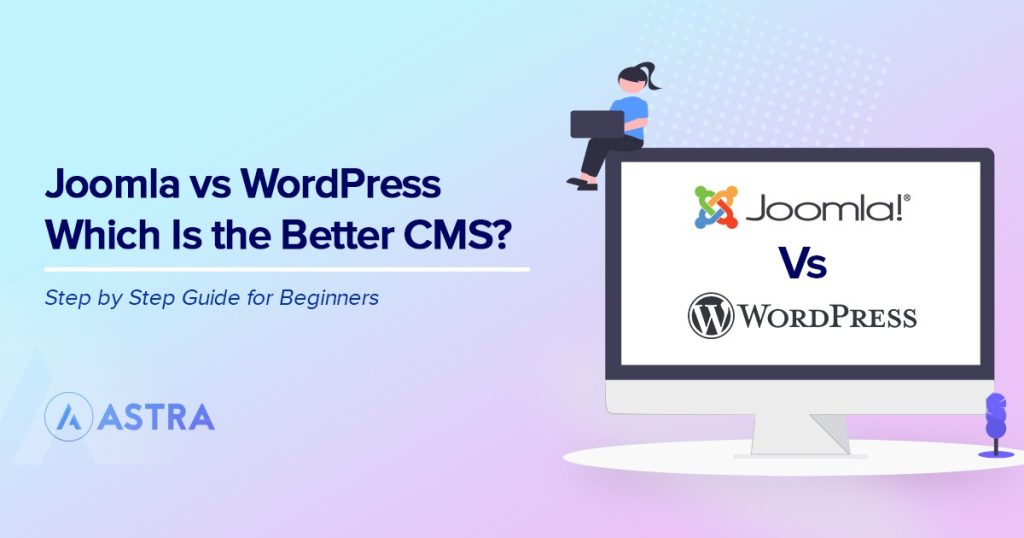
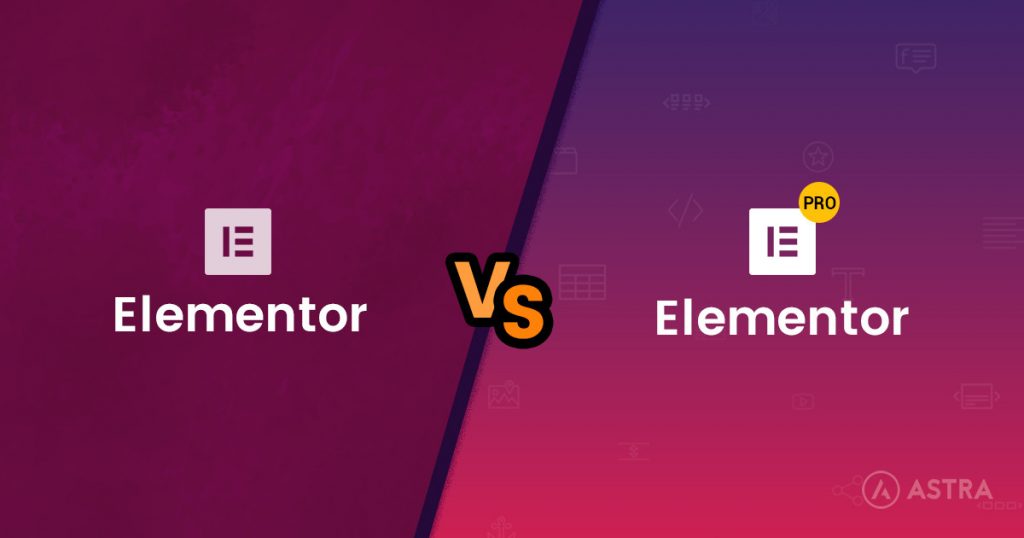
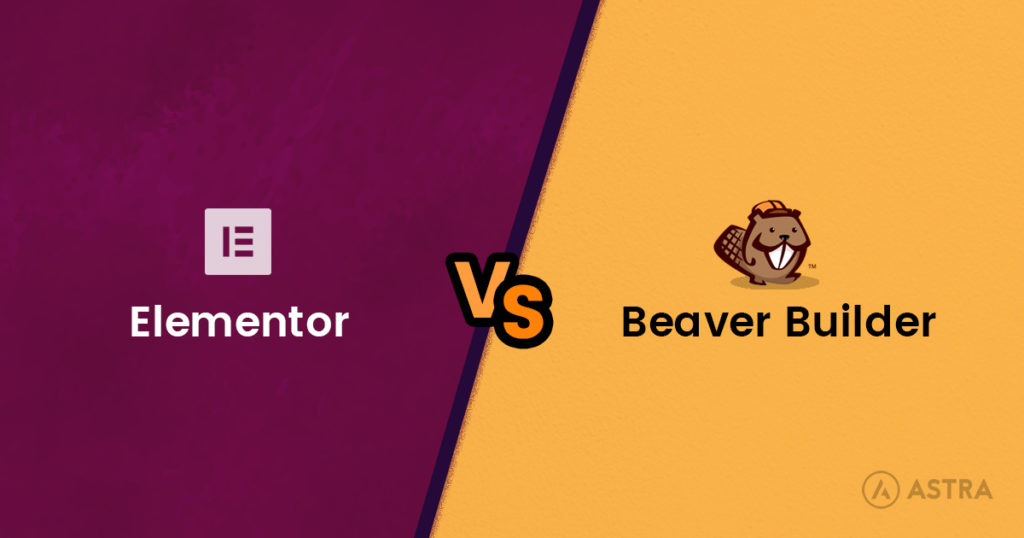
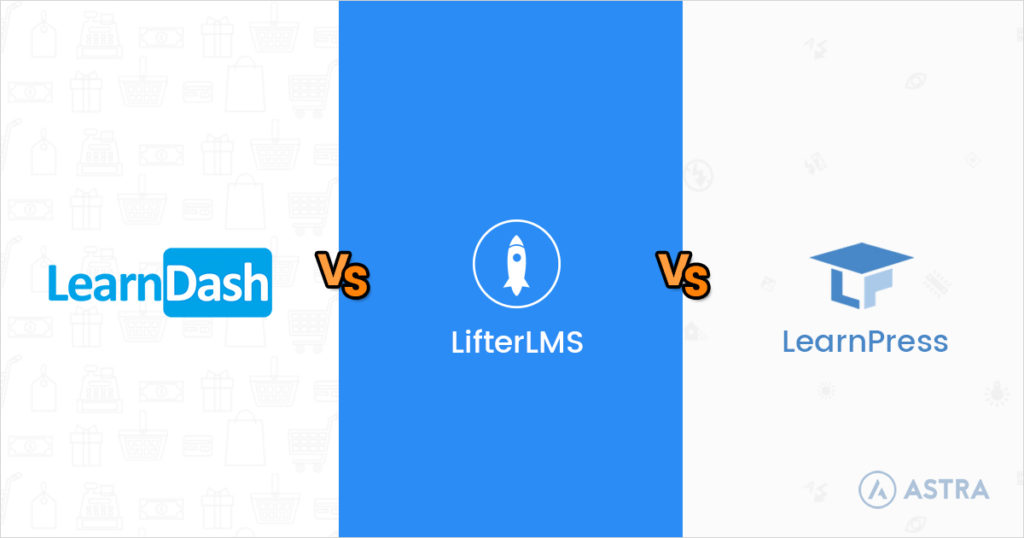
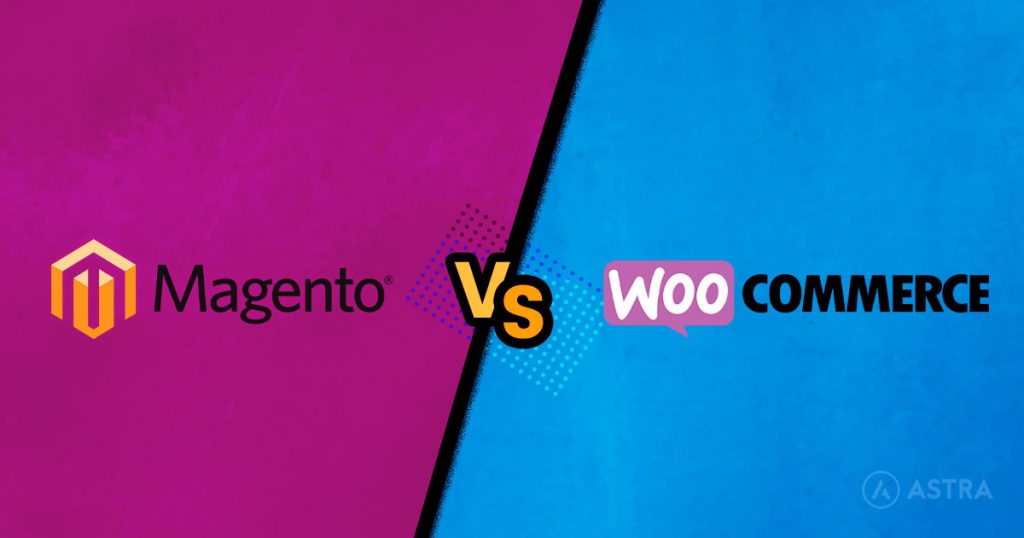
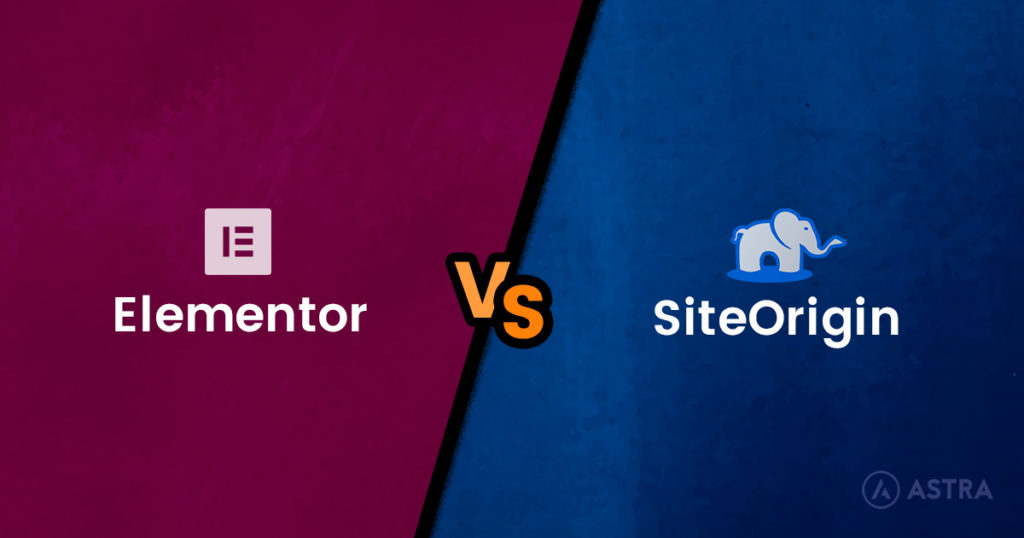
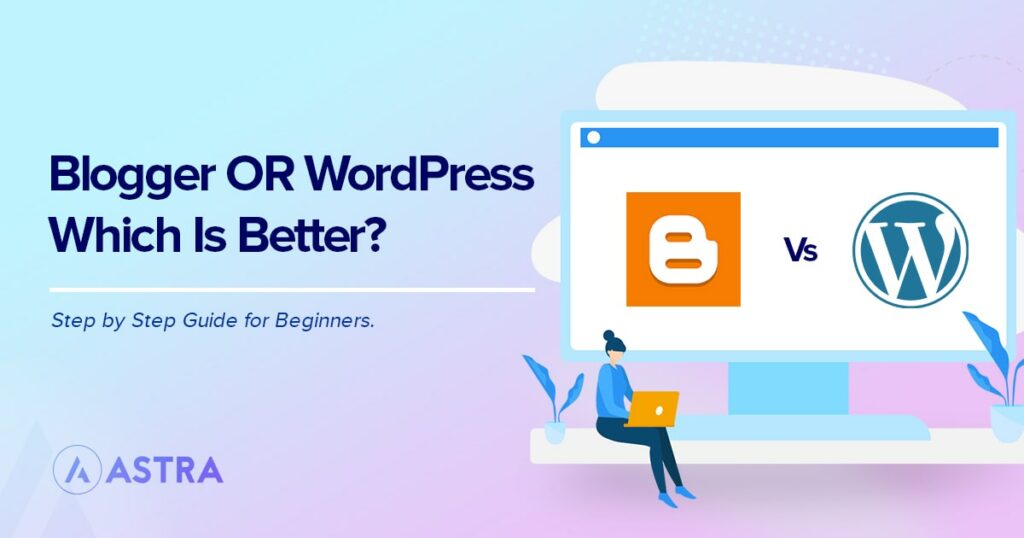

Hi,
Thanks for sharing, it was informative.
GoLogica provides Snowflake Training to help you become an expert in using Snowflake data platform. The course covers all the key concepts of Snowflake including its architecture, data model, and features. You will learn how to load data into Snowflake, query data, and create reports. The course also covers Snowflake’s security features and how to manage users and permissions. By the end of the course, you will be able to confidently use Snowflake to build data-driven applications.
Thank you, this is the article I was looking for. Btw may I know what you use for your great and fast website? I’m also planning to create a simple website for my business, but I need a domain and hosting recommendation. I hear asphostportal has a good reputation for that. Can you recommend them or are there any alternatives?